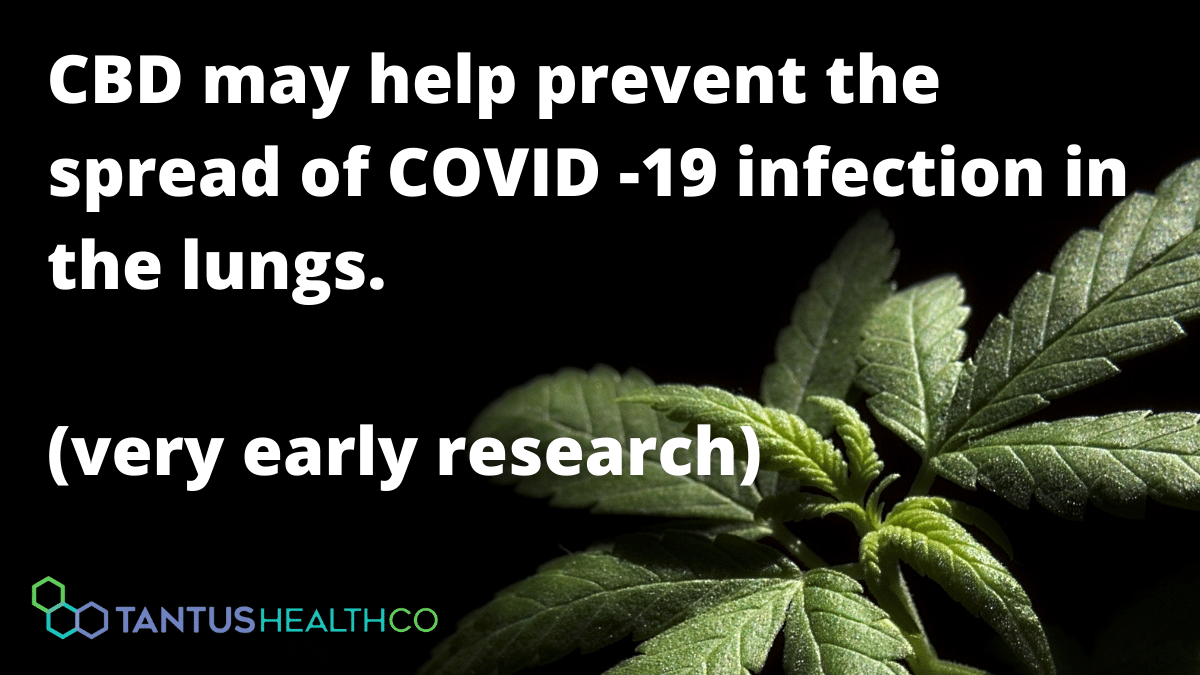Preliminary findings show that CBD may help prevent the spread of COVID-19 in lung cells

Disclaimer: the research below is pre-print, and has yet to be peer-reviewed. Peer review is an essential part of the scientific process and so the observations below are preliminary and more inquiry is required before any definitive conclusions can be drawn.
A new research paper has found that cannabidiol (more commonly referred to as CBD) may play a role in alleviating the symptoms of COVID-19.
The paper, which has yet to undergo peer review, titled Cannabidiol Inhibits SARS-CoV-2 Replication and Promotes the Host Innate Immune Response, finds that CBD may help prevent the spread of infection in the lungs. The researchers found that, “CBD acts after cellular infection, inhibiting viral gene expression and reversing many effects of SARS-CoV-2 on host gene transcription.” In simpler terms this means that they found CBD prevents SARS-CoV-2, the virus causing COVID-19, from replicating in lung cells and causing severe damage.
CBD is derived from hemp which is a cousin of the cannabis plant. So while CBD is a component of marijuana, it comes from the hemp plant, specifically in the form of hemp seed oil, and does not deliver a “high” like, for instance, cannabis sativa and indica which contain the psychoactive ingredient THC.
The researchers looked at lung cells infected with COVID-19 and found that by introducing a CBD compound they were able to inhibit the ability of COVID-19 spike proteins from attaching themselves and penetrating healthy cells. This, in effect, greatly inhibits the ability of COVID-19 to spread throughout a population of lung cells.
The researchers conclude that:
“CBD has a number of advantages as a potential preventative agent against SARS-CoV-2. CBD is widely available without restricted access if the content of THC is <0.3%. There are multiple means of ingestion, including potential for inhalation and nasal delivery. CBD blocks viral replication after entry into cells and, thus, is likely to be effective against viral variants with mutant spike proteins. Unlike drugs such as remdesivir or antiviral antibodies, CBD administration does not require injection in hospital settings. Finally, CBD is associated with only minor side effects.”
If this research is found to be rigorous, the next step would be to trial this same experiment with human lung cells. There is an abundance of caution to be take here, as this is very preliminary findings as the researchers state clearly: “We strongly caution against the urge to take CBD in presently available formulations as a preventative or treatment therapy at this time, especially without the knowledge of a rigorous randomized clinical trial with this natural product.”
While big questions remain about the role CBD may have in preventing COID-19 symptoms, there are a lot of other potential health benefits to using CBD. If you think that CBD might help you, your best first step would be to get a free consultation with a medical practitioner familiar with CBD and cannabis to see if it is right for you.